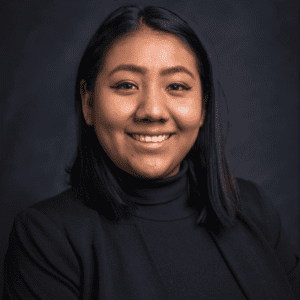
Being a CUNY student comes with many opportunities and benefits, and as a two-time CUNY graduate, I feel proud to be a part of such an achieving institution. Although one of CUNY’s acclaiming benefits is its low-cost, high-quality education, many students struggle to get by each semester. Every year, millions of students apply for the Free Application for Federal Student Aid (FAFSA). If a student meets its criteria, they may qualify for grants, work study, loans and/or scholarships.
Students applying for FAFSA will complete an application asking for personal and financial information, which Federal Student Aid (FSA) will use to determine eligibility based on their unique formula, Estimated Family Contribution (EFC). FSA utilizes the EFC formula to determine how much money a student’s family can contribute to their education by using information from parents and/or student’s taxes, assets, and family size. However this formula has been known to stir issues with students as some parents do not have those documents due to various reasons. As such, this requirement creates challenges for students applying for financial aid.
The latter issue I mentioned is best explained by my personal experience as a college student. At age 18, I moved out of my parent’s house due to a personal conflict. I moved in with a friend and when it came time to apply for college, I did what most college students do, I applied for FAFSA. At this point I was financing myself with what little money I made working a minimum wage job. The FAFSA application asked for my parent’s tax documents because I was still considered a dependent unless I was: over 24 years old, a parent, legally married, or emancipated from my parents. Neither of these options applied to me and was forced to apply as a dependent of my parents who did not support me financially.
The EFC on my student aid report told me that my family could afford my college tuition when, in reality, I barely had any money to buy groceries and pay room rent. I spent every year waiting in long financial aid offices at both CUNY BMCC and John Jay College fighting my EFC. I was still told, “Your family can afford your tuition,” and I remembered feeling so helpless and unheard. I then worked two jobs and spent 80% of my monthly income on monthly tuition installations just to get through each semester. While I was struggling in school to get by, I met many other students in similar situations like me. I then started to realize how much of an issue the EFC formula is.
Requirements on federal financial aid need to be more lenient based on students’ special circumstances and the requirements of independent statuses need to be obtainable for students with special circumstances. According to Federal Aid, special circumstances options for federal aid only include: inability to provide parental information, currently homeless or at-risk of homelessness, or seeking an unsubsidized loan. For students whose parents do not file taxes, the first special circumstance may be useful but students must showcase as much written evidence (i.e. court or law enforcement documents, letters from a school counselor or social worker etc.) of their situation as possible to a financial aid administrator. Gathering this evidence may be difficult for students, especially those whose parents are undocumented.
If the current ETC were adjusted, more CUNY students could receive needed financial aid. CUNY has one of the most diverse student bodies in the nation and along with that comes divergent living situations and living circumstances. FAFSA needs to be considerate of students’ lives especially for first-generation students and change their criteria of what they think students and their families can afford. Personal matters and complicated living situations need to be heard in the FAFSA process because they are valid and important. The bottomline is that FAFSA needs to listen to its students because its guidelines and rules are out of touch with real life.
Alejandra Martinez is a recent graduate of John Jay College and a summer intern with Young Invincibles-New York.
